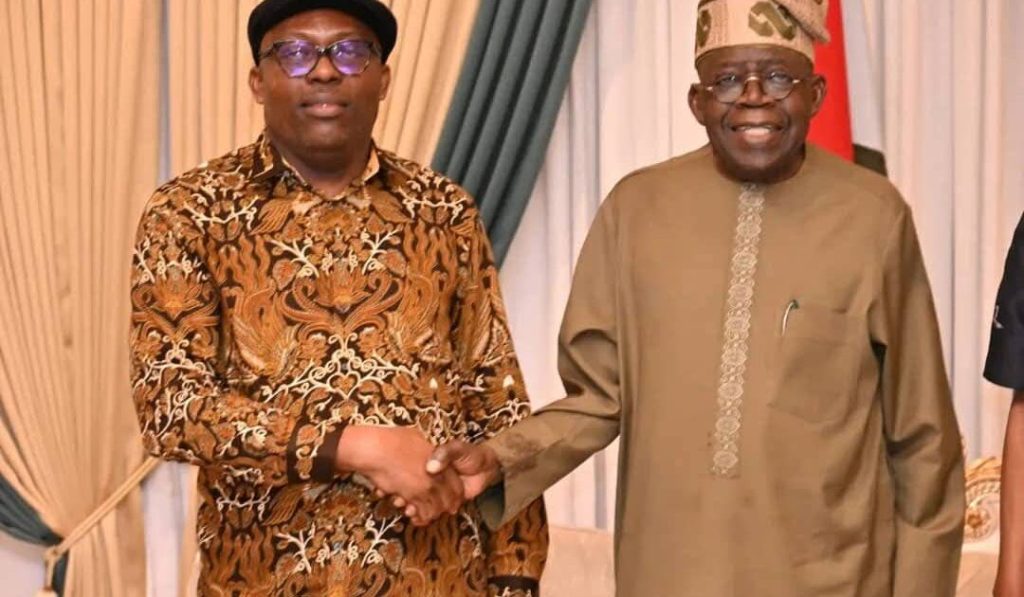A coalition of prominent Rivers State indigenes, including former Governor Celestine Omehia and former PDP National Chairman Uche Secondus, have addressed an open letter to President Bola Tinubu expressing grave concerns over the planned local government elections scheduled for August 30, 2025. The group, identifying themselves as “Major Stakeholders,” argues that the elections, organized under the authority of a federally appointed Sole Administrator and a disputed Rivers State Independent Electoral Commission (RSIEC), represent a severe threat to democracy and a blatant violation of the Nigerian Constitution. They urge the President to intervene and restore constitutional governance by lifting the state of emergency and reinstating the suspended Governor, Siminalayi Fubara, and the State House of Assembly.
The stakeholders’ primary objection centers on the legality of the RSIEC itself. They contend that the commission, as currently constituted under Vice Admiral Ibok-Ete (retd.), lacks constitutional validity. Citing relevant sections of the Rivers State Independent Electoral Commission Law of 2018 and the 1999 Constitution, they emphasize that only a duly elected Governor, confirmed by the State House of Assembly, possesses the authority to appoint the RSIEC Chairman and members. Consequently, any electoral activities conducted by this allegedly illegitimate body are deemed null and void. This fundamental flaw, they argue, undermines the entire electoral process and casts doubt on its credibility.
Further exacerbating the situation, the stakeholders point to procedural irregularities that mirror the flawed 2024 polls, which were ultimately annulled by the Supreme Court. They highlight the RSIEC’s failure to adhere to the mandatory 90-day notice period before an election, as stipulated by law. The absence of formal notifications for candidate nominations and polling timetables, coupled with the short-notice announcement of the election date, raises serious concerns about transparency and due process. They view these omissions not as mere oversights but as deliberate attempts to subvert democratic norms.
The stakeholders also draw attention to the ongoing legal challenges surrounding the Sole Administrator’s appointment and the legitimacy of the RSIEC. They note that various courts, including the Supreme Court and the Federal High Court, are currently adjudicating these matters. Despite these pending legal actions and multiple sub judice challenges by political parties, the electoral process continues unabated, raising questions about the respect for the rule of law. Holding elections while these critical legal questions remain unresolved, they argue, further undermines the integrity of the process and potentially creates a volatile political environment.
The letter underscores the broader constitutional crisis gripping Rivers State due to the federal suspension of its executive and legislative branches. The stakeholders question the rationale behind holding local government elections under a de facto state of emergency, particularly when the Independent National Electoral Commission (INEC) has deemed by-elections untenable in similar circumstances. They emphasize that Section 7(1) of the 1999 Constitution explicitly vests responsibility for local council elections with state governments, not federally appointed agents lacking constitutional grounding. The Sole Administrator’s actions, they maintain, are ultra vires and void, based on established legal principles regarding the doctrine of agency.
The stakeholders, including prominent figures such as Atedo Peterside, Dakuku Peterside, Lee Maeba, Andrew Uchendu, and Abiye Sekibo, among others, conclude their letter with a strong appeal to President Tinubu, the National Assembly, the judiciary, civil society, the media, and the international community to intervene decisively and uphold the principles of constitutional democracy. They portray Rivers State as standing at a critical juncture, faced with a choice between succumbing to impunity or upholding the Constitution and the will of the people. The stakes, they assert, could not be higher, as the outcome of this situation has far-reaching implications for the future of democracy in Nigeria. They warn that failure to address these concerns could set a dangerous precedent, undermining the principles of federalism and the rule of law.


